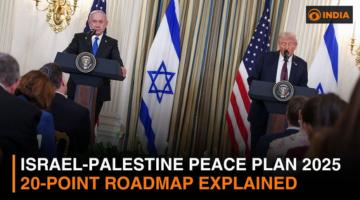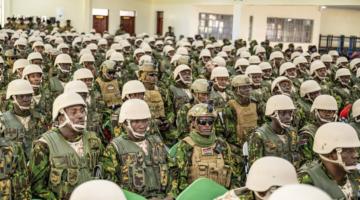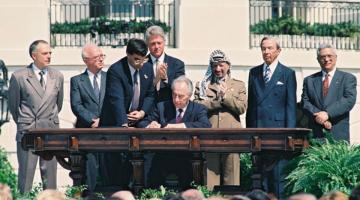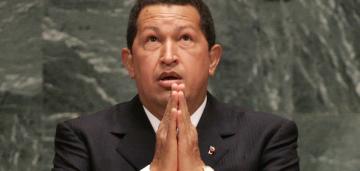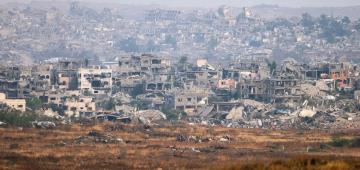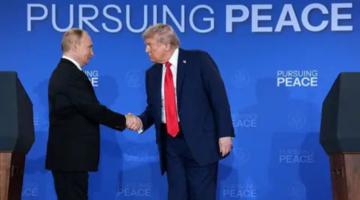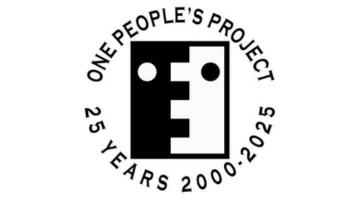UN partition plan for Palestine issued by the General Assembly in Resolution 181 on 29 November 1947
Recognition from powerful states is often a leash disguised as a handshake. True sovereignty is not granted by others but built from within.
Originally published in The Anti-Imperialist Scholars Collective.
Two years on from Al Aqsa Flood, and its historic significance only deepens. The question of Palestine assuming centre stage at the 2025 UN General Assembly cannot be delinked from the crisis that Al Aqsa Flood has imposed upon zionism and the broader Western world order.[1] The prominence of Palestine at this year’s UNGA is all the more striking given that, just two years earlier, Netanyahu stood before the same body to gloat about the supposed “end” of the Palestinian question and the normalization of zionist relations with Arab states.[2]
The Palestinian question at the UNGA centered, most notably, on the recognition of the State of Palestine by several major Western powers. This has been observed to carry the effect of further isolating Israel on the world stage,[3] though more critical observers have dismissed the recognition as performative political theatre that means little in the face of global failure to halt the genocidal slaughter Israel is inflicting upon Palestinians.[4] In my view, the rush by Western states to recognize Palestine represents an attempt to achieve diplomatically what zionism has been unable to secure militarily: the permanent disarmament of Palestinians in order to impose upon them a degraded form of sovereignty through which they can only ever live in an effective state of surrender to zionism. In other words, the West seeks to grant Palestinians an external basis of sovereignty but only on the condition that they first abandon any real effective internal basis. This can only leave Palestinians in a weak, fragmented, and dependent condition. The basis of strong, unified, and independent sovereignty has always been, and will remain, an internal power that commands recognition from external powers.
For any State or actor truly committed to the realization of Palestinian sovereignty, the question before them is the same one necessary for ending the genocide: the disarmament not of Palestine, but of zionism. It is not an undermining of the internal basis of Palestinian sovereignty that this moment demands, but rather of the defeat of the zionist colonial project, something that necessarily involves an overturning of the Western world order. In order to grasp the contradictions of the recognition of the state of Palestine, it is necessary to first understand the “two sovereignties” that have structured modern world order, and how Palestinian resistance has forced the latter into a state of crisis.
The "Two Sovereignties" Structuring the Modern World Order
Sovereignty, in the modern world order, is premised upon two relations of force, one internal and one external.[5] Internally, sovereignty operates through the effective monopoly over force in a delineated territory. Externally, sovereignty operates through the recognition commanded from, or granted by, other sovereigns. The two relations of force, while distinct, move in clear relation to one another. The relative qualitative and quantitative bases of the “monopoly over force” held internally by a sovereign determines its capacity to project force outwards against other sovereigns. The relative balance of force that then exists between sovereigns is determinative of the qualitative form through which they recognize one another’s sovereignty—mutual recognition, command, or grant. Where a balance of force is absent, there can be no true mutual recognition. Here, the sovereign that holds more force projection capacity commands recognition from other sovereigns to whom it will only grant recognition in turn if they satisfy the conditions set forth by the more powerful sovereign.
It is this play between the two relations of force that has structured the different degrees of sovereign power held by states in the international system, a difference that has been expressed most fundamentally in the relations between states of the Global North and Global South. The sovereignty distinction has its origins in the colonial and imperial foundations of modern world order, which emerged through the outright denial of sovereignty to the peoples of the Americas, Africa, and Asia by colonizing European powers.[6] This denial of sovereignty has historically been imposed through a combination of fraud and force. EuroWestern powers have variously usurped sovereignty through the application of an overwhelming military force or, when such force was lacking in sufficiency, through the construction of fraudulent treaties that deceived the colonized into laying down their arms and surrendering their industries.
The denial of sovereignty to the colonized further stands as the condition through which, its other, a fully developed modern European sovereignty would come to be realized. The question of what sovereign power was, and how and where it demonstrated itself, was a vexing one in the early modern era. This question was resolved through the colonial relation, for it was in the colonial space that an absolute violence was demonstrated and applied, enabling the consolidation of European sovereignty.[7] European sovereigns mutually recognized one another and balanced against one another on the basis of their ability to hold sovereign power over, and drain wealth from, a colonial territory.[8] There are thus two forms of sovereignty structuring modern world order: the strong, unified, autonomous sovereignty of the states of the imperialist core, and the weak, fragmented, dependent sovereignty of the states on the periphery.[9]
The principal structuring relation of modern world order is not, as Western states claim, a rule of international law consistently and coherently upholding the principle of sovereignty. It is, rather, the diminished form of sovereignty imposed upon the peoples and states of the Global South that is the structural condition of possibility for generating order amongst the more fully sovereign states of the North.[10] Thus, when the basis of this degraded form of sovereignty is put to question, the ruling powers of world order will seek to restore it by any means necessary. Or, put differently, it is when the colonized, and those on the periphery more generally, demonstrate the material capabilities to reclaim full sovereignty that they are subject to renewed forms of fraud and force that seek to return them to a diminished form of sovereignty. It is necessary to center this anti-imperialist struggle for sovereignty, as it forces us to take into analytical account how the structure of world order is shaped not only by a self-propelling imperialism, but rather by a struggle between imperialism and anti-imperialism.
Between Denial and Reclamation: The Historical Struggle for Palestinian Sovereign Right
It is only within this framework of the “two sovereignties” of modern world order, and the contestations to which they give rise, that we can come to grasp the implications of the recent recognition of the state of Palestine by Western powers. The denial of sovereignty to the Palestinian people has been historically effected by the force and fraud that is at the heart of Western imperialism. The application of overwhelming violence is what enabled British imperialism to first usurp sovereignty over Palestine and force upon Palestinians the partition of their territory in service of the zionist colonial project. Zionism, as its early ideologue Vladimir Jabotinsky argued, is nothing more than a “colonizing venture” that thus “stands or falls on the question of armed force.”[11] Jabotinsky, unlike the delusions of other early zionists, recognized that Palestinians would never willingly relinquish sovereignty over their lands. Zionist usurpation of Palestinian sovereignty could only ever be secured by a force that could dispossess Palestinians, expel them into distant lands, contain them in restricted reserve or Bantustan like spaces, andincarcerate them in prisons. A ceaseless land thieving, and sovereignty usurping, project such as zionism could necessarily only stand through the application of an overwhelming force.
In the long history of modern world order, each and every act of the denial of sovereignty has generated a counter-movement by the colonized to reclaim sovereignty. Palestinian resistance to the colonial denial of sovereignty or, put more positively, demonstration of the capacity to reclaim sovereignty, has been consistently raised and renewed since the onset of the zionist colonial project. Zionism and its imperialist backers have responded to Palestinian armed struggle, to each demonstration of the capacity for reclaiming full sovereign power, by seeking to return Palestinians to a disarmed and disorganized condition. Zionism cannot co-exist, in a relation of mutual recognition, with a fully sovereign Palestine. It can only co-exist with Palestinians if the latter are reduced to a disarmed and disorganized humanitarian charity case permanently surrendered to zionist sovereign power.
The West has so firmly stood with zionism for the reason that zionism acts as the proxy for Western power in the West Asian region. Zionism, as a proxy for the projection of Western power, is essential to imposing a diminished sovereignty more broadly on the peoples and states of West Asia. The order of diminished or degraded sovereignty in West Asia, in so far as it has backstopped US financial and energy power, has been key to maintaining the stability of order amongst Western sovereigns.
Al Aqsa Flood and the Crisis of Western Order
It is within this setting, one where zionism requires an absolute monopoly over the means of violence over Palestinians, that we can grasp the historic crisis that Al Aqsa Flood has posed for both the continuation of the zionist colonial project and the broader Western imperialist order. The genocidal response by zionism, and its Western backers, proves once and for all that it cannot co-exist with a sovereign Palestine. It would rather intensify and escalate its genocidal basis, wage a war of extermination, than even countenance a negotiated settlement based on mutual recognition between two sovereigns. A truly sovereign Palestinian state would possess the capacity to halt land theft and enforce the right of return for dispossessed Palestinians. This would be a material and ideological crisis from which zionism could not recover.
The undeniable truth, at this moment, for zionism and its Western backers, however, is that the genocidal campaign has not succeeded in its aims. There can be no denying that the zionist army has laid waste to much of Gaza, and has made the territory largely uninhabitable. Yet, the Palestinian resistance remains armed and capable of preventing the consolidation of zionist sovereign power over Gaza.[12] The basis for a strong, unified, independent Palestinian sovereignty remains in existence in Gaza, and the Palestinians of Gaza more broadly continue to refuse to surrender.
The State of Palestine: Recognition as Colonial Restoration
It is here, in so far as zionism and imperialism have not been able to reimpose, via violent force, the conditions for a permanent degradation of Palestinian sovereignty that they now seek to do so through fraudulent diplomacy. In this sense, we must emphasize that it is the steadfastness of the Palestinians in Gaza, their ability to both withstand and resist, that has indeed forced Western powers to recognize a state of Palestine. Al Aqsa flood has exposed to the world the true genocidal nature of zionism. Western states were all too happy to offer total impunity for this genocidal violence, perhaps believing that the Palestinians would be defeated and surrendered in short order. The Palestinian refusal to surrender, however, has now forced a legitimacy crisis upon Western states, as their publics witness day in and day out the escalating slaughter of a live streamed genocide. Palestinian resistance has imposed a new equation: the defense of the zionist project is now experienced as a destabilization of both the internal and external relations of sovereignty for Western states.
The reconsolidation of Western world order, and the two forms of sovereignty upon which it has been structured, drives the urgency with which Western states now seek to recognize a state of Palestine. They seek to both restore their legitimacy and renew the basis of the zionist colonial project. They offer to grant Palestinian sovereignty on the terms set out in the recent “New York Declaration on the Peaceful Settlement of the Question of Palestine and the Implementation of the Two-State Solution.”[13] These terms make sovereignty conditional on either the effective demilitarization of any Palestinian state, or on the containment of Palestinian force within bounds circumscribed by zionist power.[14] In short, the West seeks to achieve by diplomacy what could not be achieved on the battlefield—the permanent disarmament of Palestine and its effective surrender to zionism. This is diplomatic fraud, a transparent bait and switch, a continuation of deceptive “treaty” practices the West has long deployed to impose diminished and degraded forms of sovereignty. This external recognition of Palestine, in other words, aims to compel Palestinians to willingly abandon the real internal basis of their sovereignty.
For the Palestinians, this will never lead to real sovereignty. It will instead deny Palestinians the means through which they can return to reclaim their stolen lands. It will deny, even more fundamentally, the means through which Palestinians can order their lives and lands in service of Palestinian social and cultural reproduction. The correct order for sovereign reclamation has always been one in which the internal basis of sovereignty—the hard power through which a people defend their lands—commands external recognition. If sovereign reclamation begins with, and is even dependent upon, an external basis granted by hostile powers, this can only ever undermine the real internal basis of sovereignty. Recent history has demonstrated this to be the case in Southern Africa, where both Zimbabwe[15] and South Africa[16] agreed to abandon land reclamation as a condition for being granted sovereignty by the West. In post-coup Haiti, the West conditioned sovereign recognition on the permanent expulsion of the Lavalas party from the Haitian political landscape,[17] a move that has parallels in the New York Declaration’s demand that Palestinian sovereign recognition be contingent upon the “end of Hamas.” Haiti has since remained contained within a quasi-sovereign space. For Palestinians more directly, their own recent history serves as enough of a warning. The history of the expulsion of the PLO from Beirut in 1982, and the massacres that followed in Sabra and Shatila, and the accelerated land theft of the Oslo framework, prove the limitations of beginning with the imperative of external recognition.[18] The abandonment of the internal force grounding sovereignty has led to dependency and fragmentation among Palestinians. It is the reemergence of the internal basis, projected from the cradle of Palestinian resistance in Gaza, that has forced even this small measure of external recognition. A future in which a strong, unified, and independent Palestine emerges will necessitate that the internal remains the ordering basis of Palestinian sovereignty.
As for the rest of the world, any actor serious about recognition of a sovereign Palestinian state would make the same demands that are necessary for ending the genocide. What stands before the world today, whether in terms of the end of genocide in Gaza, the realization of Palestinian sovereignty, or the stabilization of world order, is the question of the disarmament and defeat, not of Palestine, but of zionism. The recognition of the state of Palestine materially necessitates that a two-way arms embargo be imposed upon zionism, and that states recognizing Palestine comprehensively adopt the BDS campaign. The Palestinian resistance has demonstrated that it will not be defeated in Gaza, and the Palestinian people more generally have demonstrated a steadfastness to remaining and returning. The moment is at hand now for the popular classes and solidarity movements across the world to further press their states to impose a comprehensive arms embargo and economic sanction on the occupying zionist entity.
The steadfastness of Gaza proves that Palestinians continue to hold the internal basis of sovereignty. Their refusal to surrender has forced the Palestinian question back onto the global stage and has exposed the colonial foundations of the Western world order. Recognition on Western terms represents another attempt to contain the struggle for Palestinian sovereignty.
True recognition will not come through diplomatic fraud or conditional treaties. It will come through the defeat of zionism and the dismantling of the imperial order that sustains it. Only then can a strong, unified, and independent Palestine emerge — not as a grant from imperialism, but as the sovereign expression of a Palestinian people who refuse to be subdued.
Bikrum Gill is a member of AISC.
__________________________________________________________________________________
[1] https://www.vox.com/politics/462322/palestinian-statehood-israel-annexation-unga.
[2] https://www.timesofisrael.com/full-text-of-netanyahus-un-address-on-the-cusp-of-historic-saudi-israel-peace/.
[3] https://time.com/7319268/palestine-state-recognition-un-trump-netanyahu/.
[4] https://al-shabaka.org/roundtables/statehood-without-liberation-europes-response-to-genocide/.
[5] See Jean Bodin, Six Books of the Commonwealth, abridged and translated by M.J. Tooley (New York: Barnes & Noble, 1967).
[6] Siba Grovogui, Sovereigns, Quasi-Sovereigns, and Africans: Race and Self-Determination in International Law (Minnesota: University of Minnesota Press, 1996); see also Antony Anghie, Imperialism, Sovereignty, and the Making of International Law (Cambridge: Cambridge University Press, 2005).
[7] Anghie, op. cit
[8] Giovanni Arrighi, The Long Twentieth Century: Money, Power, and the Origins of our Times (London: Verso, 1994).
[9] I take this concept of “two sovereignties” from Anghie, op. cit
[10] Arrighi, op. cit
[11] Ian Lustick, “To Build and to be Built by: Israel and the Hidden Logic of the Iron Wall,” Israel Studies,1, 1 (1996): pp. 196 – 223.
[12] https://www.foreignaffairs.com/israel/new-hamas-insurgency
[13] https://www.un.org/unispal/document/annex-new-york-declaration-06aug25/
[14] https://www.cnn.com/2025/09/23/middleeast/recognizing-palestinian-state-explainer-intl-latam
[15] Sam Moyo and Paris Yeros, “Land Occupations and Land Reform in Zimbabwe: Towards the National Democratic Revolution,” in Reclaiming the Land: The Resurgence of Rural Movements in Africa, Asia, and Latin America(London: Zed Books, 2005), pp. 165 – 208.
[16]Mahmood Mamdani, Neither Settler nor Native: The Making and Unmaking of Permanent Minorities (Belknap Press, 2020).
[17] Peter Hallward, Damning the Flood: Haiti and the Politics of Containment (London: Verso, 2007).
[18] Bikrum Gill, “Two Logics of War: Liberation Against Genocide,” Ebb Magazine, Issue 1, 2024.

